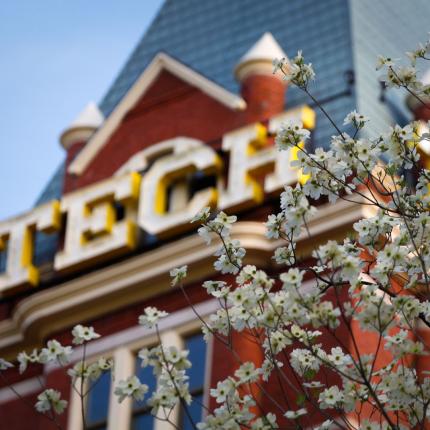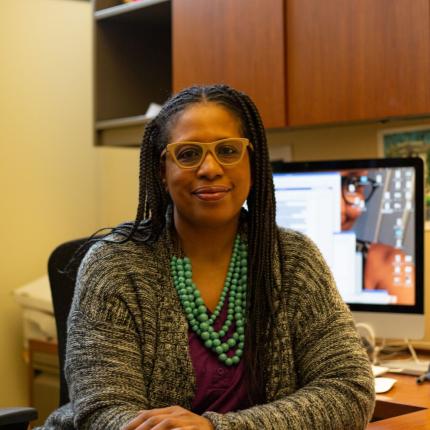Black feminist theory challenges assumptions and norms at the intersection of sexism and racism, says Sherie Randolph, associate professor in Georgia Tech's School of History and Sociology and co-founder of the Black Feminist Think Tank. Black women created it and practice it as a means to free not only Black people but everyone, she adds.
Learn more in Randolph’s two-minute lecture:
Transcript: What is Black Feminist Theory?
So, Black feminist theory historically, I'm a historian, normally what we would say is at least have raised a challenging of race — racism and sexism.
And it's by Black women. Black women created Black feminist theory. They continue to trouble its definition and use it as a theory and also a practice to free Black people, free Black women, but also to free everyone.
What Black feminists have been really good about pointing out are how oppressions of racism, sexism, classism, etc., when they meet, and when they're experienced by Black people, how that oppression then changes and becomes something else that causes suffering for not just them but for everyone.
And right now, this current moment, Black Lives Matter is being run, and that hashtag comes from, Black feminists. Most of those organizations have a Black feminist platform.
And so it's challenging us to think of police violence also as a Black feminist issue. Because it affects Black people writ large. It's challenging us to look at also #SayHerName, of Black women who are also subject to — subjected to — police violence, but also subjected to what we call domestic violence or any type of violence that it's intersectional, like, you can't do, end one without ending the other.
Did You Know?
In March 2023, Randolph curated the first-ever physical exhibit for the National Women’s History Museum in Washington, D.C.
The interactive display, titled We Who Believe in Freedom: Black Feminist DC, focuses on “the stories and voices of Black feminist organizers and theorists — including Anna Julia Cooper, Eleanor Holmes Norton, Mary Treadwell, and Nkenge Touré — whose expansive work made a difference in the lives of Black women in their Washington, D.C., communities and for all people throughout the United States." It will run through Fall 2024 at the Martin Luther King Jr. Memorial Library.



